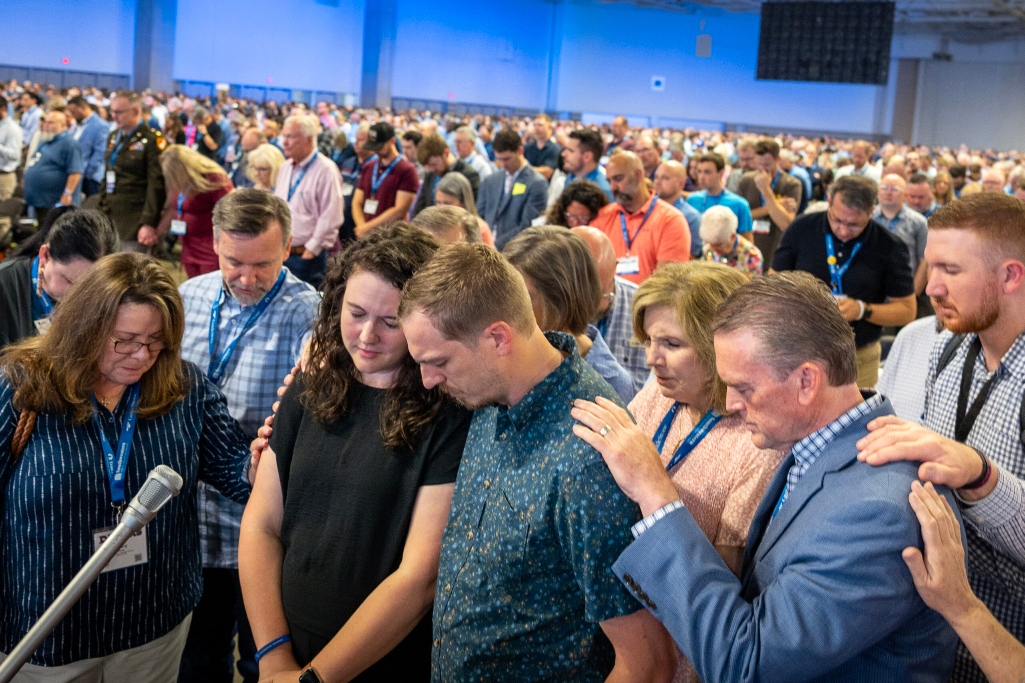In the foothills of the Blue Ridge Mountains, right in the middle of apple-growing country, one small church has embraced mission in a big way. On any given Sunday, about 250 people fill the pews of Fruitland Baptist Church in Hendersonville, N.C. Evidently, those people are busy.
In 2015, Fruitland counted 422 participants in local, state, national, and international mission outreach efforts, indicating that many members served on multiple teams throughout the year. The small church sent four teams to a challenging environment in Central Asia, the result of a long-term relationship with International Mission Board (IMB) personnel. Meanwhile, the church continued to give sacrificially to the Cooperative Program and the Lottie Moon Christmas Offering. They often set percentage giving records for the state of North Carolina.
The IMB asked Mike Smith, the pastor of Fruitland Baptist for twenty-five years, to share some lessons learned from his experience leading a small church to greater mission engagement.
When Giving Meets Going
When I arrived at Fruitland, the congregation was giving generously, often sacrificially, to missions through gifts to the Lottie Moon Christmas Offering and Cooperative Program. But there was one thing lacking: Fruitland was not known as a “going” church.
Like many other churches, Fruitland was happy to join other Southern Baptist churches in supporting missions across the state, nation, and world by giving. In a sense, we were paying so that someone else could go.
In my early years at Fruitland, we became involved in mission trips within the United States. These trips grew in size and scope, but we didn’t reach those outside our borders. God was preparing us for more.
After several years of domestic mission trips, two women in our church went on a vision trip to Central Asia. Upon returning, they asked our fellowship to consider becoming involved with the work there. After a couple of trips, our fellowship adopted an unengaged, unreached people group in Central Asia. We began to work consistently with a team on the ground in the region. All of those years of preparation for and application of missions on our home soil had produced a desire to reach the world with the gospel.
Here are five lessons I’ve learned as our church began matching our giving with going.
1. Lead by example
My first overseas mission experience was in 1992 after the fall of the Berlin Wall. In 2009 when our fellowship was praying about getting involved in Central Asia, I went on a trip there with our team. I’ve been back nearly every year since. When I had the opportunity to take a two-month sabbatical, I spent it serving with a team in Central Asia. I gained insights that I never could have gleaned on a week-long trip.
Many have said that the gospel is “caught” rather than “taught.” The same is true with mission. As a pastor, if you’re not willing to make the sacrifices necessary to be involved in international missions, you’re not likely see a missional attitude in your congregation. The congregation needs to see a sermon in the flesh.
2. Stick to your commitments
Make up your mind that you’re committed to mission for the long haul. If the fellowship you serve hasn’t been involved in reaching out across the world, it may take some time to get them to that point. One or two sermons on Acts 1:8 isn’t likely to do the job. Preach, teach, pray, and lead by example. Trust God to do the work in their hearts.
3. Give with an open hand
Don’t be afraid that money and effort going toward mission efforts will hurt your church’s finances. In my experience, the opposite is true. Over the years we have spent tens of thousands of dollars and countless hours on mission trips. Instead of taking away from other efforts, people in our fellowship have been inspired to give more sacrificially of their time and financial resources. A lot of money has come through our fellowship for missions, but the giving hasn’t taken away from anything we are called to do locally. In fact, I think it has added to it. We call it the “open hand principle.” We strive to live with our hands open to give. I believe it’s a posture that the Lord honors.
4. Bring other fellowships along
Be open to involving other fellowships in mission trips. As God began to work in our fellowship, he also began to influence other fellowships through us. Members of our church received training on how to train others to minister in Central Asia. Then we used our training to prepare other fellowships to go, and we invited them to go along on trips with our teams. At least five other congregations have now become part of the effort in Central Asia, without any sense of competition. All this has been used by God to promote a focus on his kingdom.
5. Expect mission to change your church
Your involvement in overseas work will have an effect on your work at home. When you go on a trip overseas, you’re never the same. No one can be a part of a mission experience and come home unchanged. You begin to see needs in your community in a different way. People tend to have their eyes opened to what is going on around them in their Jerusalem. Many of our local ministry efforts have expanded because of our international mission work.
Acts 1:8 informs us, inspires us, and challenges us. In order to reach our world, it will take more than a few thousand personnel sent out through IMB. It will take more than what megachurches are able to do. It will take all of us, sending our people to reach Jerusalem, Judea, Samaria and the uttermost parts of the world.
Small-church pastor, you are part of all of this. May God use us to lead our congregations to be the witnesses God has called us to be in the days ahead.
(EDITOR’S NOTE – As a pastor for 32 years, Mike Smith now serves as the director of missions for the Carolina Baptist Association. He continues to teach at Fruitland Baptist Bible College where he has been a professor for more than twenty years. You can find him on Twitter @CarolinBaptAssoc. This blog first appeared at IMB.org. Used by permission.)


